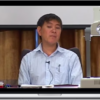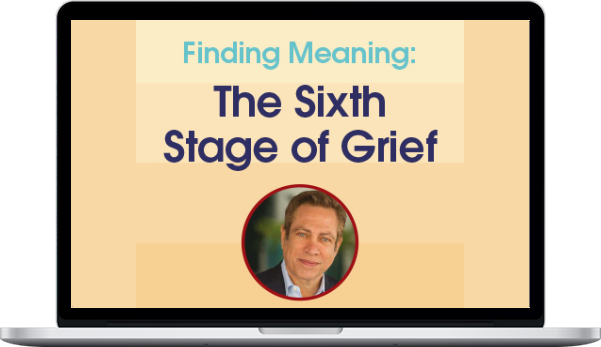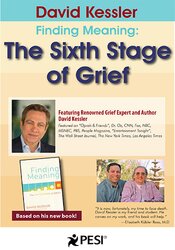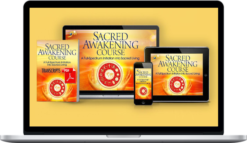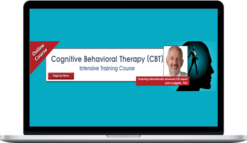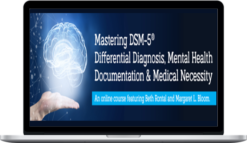David Kessler – Finding Meaning: The Sixth Stage of Grief
$219.99 $39.00
Total Sold: 1
»Instant Delivery
Description
David Kessler – Finding Meaning: The Sixth Stage of Grief
Description Finding Meaning: The Sixth Stage of Grief
Even as a grief expert, David was unprepared for the sudden death of his son, who died at age 21. People asked him, “What’s it like for the grief expert to lose his son?” He would answer, “The grief expert did not lose his son, the father did.” Everything he knew about grief turned out to be true. David had to go through the five stages of grief but found himself left wanting more from the experience – he wanted to find meaning in his life after such a terrible loss.
He learned that broken heart syndrome is real and he realized he would either die of it or live with it, and that healing occurs not when grief gets smaller, but when life gets bigger. This led to the discovery of the 6th stage of grief – finding meaning.
Based on David Kessler’s newest book, Finding Meaning: The Sixth Stage of Grief, this seminar recording is designed to help professionals guide people through life’s worst moments to find meaning after loss. All types of loss will be covered, including betrayal, loss of a parent or family member, and loss due to addiction, mental illness and suicide.
After attending this seminar recording, you will be able to enhance your work with those who have dealt with any kind of loss. It will fill you with new insight, tools, strategies, and inspiring information, leaving you looking forward to the next day… so you can immediately begin to use all you have learned!
Don’t miss this opportunity to learn from one of the world’s leading grief experts – purchase today!
“People always want to know if there is life after death for their loved ones. I believe there is, but more importantly, there is life after death for the living. I want to help them find meaning that honors their loved ones. Sometimes when we are at our worst, we can find our best.” -David Kessler
David is honored to have received permission from The Elisabeth Kübler-Ross Family and The Elisabeth Kübler-Ross Foundation to add a sixth stage to her renowned 5 stages of grief.
What you’ll learn in Finding Meaning: The Sixth Stage of Grief
Objectives
- Develop meaning-making principles to assist clients coping with various types of loss.
- Formulate ways to use meaning to help clients remember with more love than pain.
- Evaluate techniques for using meaning to help clients resolve the internal struggle of “why did this happen?” and “why did this happen to me?”
- Determine why children are often the forgotten grievers and how to help them through their grief.
- Develop strategies that incorporate meaning mechanisms to help clients cope with complicated grieving.
- Utilize strategies to help clients address guilt, shame and stigma associated with grief.
Outline
The Sixth Stage of Grief: Finding Meaning
- Why the stages were never meant to be linear
- What is making meaning in grief?
- Types of meaning making
- How meaning can help remember the person who died with more love than pain
- Why a sixth stage is the key to recovery from grief
- Keys to finding acceptance and moving into the sixth stage
Witnessing vs “Fixing” Grief
- Mirroring techniques
- The cost of trying to “fix” those who are grieving
- Go beyond active listening skills to connect
- The consequence of trying to find meaning too early
Help Clients Change Their Thinking Around Loss
- Strategies to address guilt, shame and stigma in grief
- How to increase resilience after loss
- Use positive psychology to increase the possibility of post traumatic growth
- Understand the “meaning” we attach to the traumatic loss or death
- How to decrease catastrophizing after loss
- Learn ways to instill good memories instead of painful ones
Complicated Grief
- Simplifying grief models and exploring new models, including resiliency and Option B
- Meaning making as a new tool for dealing with murder, multiple losses, Alzheimer’s
- Techniques for strength-based grief counseling
- Post traumatic growth vs Post traumatic trauma
- Techniques for releasing the obsessive replaying of the trauma/death
Help Bereaved parents
- Understand the impact of child loss
- Learn ways to be comfortable with treating this type of loss
- Techniques for helping parents who are often grieving differently
- Learn ways to help sustain the marriage through tremendous loss
- Ways to help parents deal with the discomfort of living and loving again
- Address intimacy issues that may come up in grief
The Grief of Suicide
- Tools for dealing with the “what if’s” and “if only’s”
- Understand the true “why” of death by suicide
- Ways to help others find peace again
Loss by Addiction
- Meaning making for healing self-blame
- How to help loved one’s sort through the shame and isolation
- Understand the roles they did and didn’t play in an addiction death
Shootings and Other Disasters
- Shootings/hurricanes/earthquakes and terrorist’s acts
- Techniques for approaching horrific crime and/or disaster scenes
- The impact of natural vs. manmade disasters
Healing Grief in Divorce
- Use meaning to reframe divorce and heal shame
- Heal after betrayal by understanding its meaning
- Understand the true meaning of marriage after it ends
- Interpret the meaning behind negative reoccurring patterns
- Negative meanings we make after a relationship ends
Healing Complicated Relationships after Death
- Learn techniques to heal a relationship after death
- Understand patterns that can heal that relationship and help in all future relationships
- Learn ways to help your client find peace in difficult relationships
Meaning and the Afterlife
- Effective and ineffective models of continuing connections for living a full life
- Use the model of continuing bonds and connections for healing
- Learn ways to normalize client experiences around continued connections with loved ones that have died
Who is Finding Meaning: The Sixth Stage of Grief for:
- Counselors
- Social Workers
- Psychologists
- Physicians
- Nurses
- Case Managers
- Marriage & Family Therapists
- Addiction Counselors
- Thanatologists
- Chaplains/Clergy Hospitals
- Palliative Care Services
- Hospice Professionals
- Funeral Directors
- Other Mental Health Professionals
About David Kessler

David Kessler is one of the world’s foremost experts on healing and loss. His experience with thousands of people on the edge of life and death has taught him the secrets to living a happy and fulfilled life.
He is the author of six bestselling books. His new book is Finding Meaning: The Sixth Stage of Grief. His first book, The Needs of the Dying, a #1 best-selling hospice book, received praise by (Saint) Mother Teresa.
He co-authored two bestsellers with the legendary Elisabeth Kübler-Ross: On Grief and Grieving and Life Lessons. His most newly released book is You Can Heal Your Heart: Finding Peace After Breakup, Divorce or Death with Louise Hay.
He worked with Elizabeth Taylor, Jamie Lee Curtis, and Marianne Williamson when their loved ones faced life-challenging illnesses. He also worked with late actors Anthony Perkins and Michael Landon. David’s work has been discussed in the Los Angeles Times, Business Week and Life Magazine, and has been featured on “Brené Brown, CNN-Cross Fire”, NBC, Fox, PBS, “Dr. Oz” and “Entertainment Tonight”.
David is a contributing writer on Oprah.com, Dr. Oz’s Sharecare.com, “Anderson Cooper 360” and “The Huffington Post”.
David has a master’s degree in Health Care Bioethics from Loyola Marymount University, he did his undergraduate work at University of Southern California and is a member of the American College of Health Care Executives. He is a certified AMA/EPEC (Education for Physicians) trainer.
He also is the founding chairperson for the Hospital Association of Southern California Palliative Care Committee and spent the last decade as a C-suite executive in a 650 bed – three hospital system in Los Angeles County.
Speaker Disclosures:
Financial: David Kessler is a presenter and receives compensation. He is the co-founder and President Emeritus of Project Angel Food. He is a published author and receives royalties. He receives a speaking honorarium and recording and book royalties from PESI, Inc. He has no relevant financial relationships with ineligible organizations.
Non-financial: David Kessler is a board member for the Farrah Fawcett Foundation. He is a team member of the Health Care Executives of Southern California, the Los Angeles Police Department, and the Red Cross.
More courses from the same author: David Kessler
Delivery Policy
When will I receive my course?
You will receive a link to download your course immediately or within 1 to 21 days. It depends on the product you buy, so please read the short description of the product carefully before making a purchase.
How is my course delivered?
We share courses through Google Drive, so once your order is complete, you'll receive an invitation to view the course in your email.
To avoid any delay in delivery, please provide a Google mail and enter your email address correctly in the Checkout Page.
In case you submit a wrong email address, please contact us to resend the course to the correct email.
How do I check status of my order?
Please log in to HealingCourse account then go to Order Page. You will find all your orders includes number, date, status and total price.
If the status is Processing: Your course is being uploaded. Please be patient and wait for us to complete your order. If your order has multiple courses and one of them has not been updated with the download link, the status of the order is also Processing.
If the status is Completed: Your course is ready for immediate download. Click "VIEW" to view details and download the course.
Where can I find my course?
Once your order is complete, a link to download the course will automatically be sent to your email.
You can also get the download link by logging into your HealingCourse account then going to Downloads Page.
Related products
Total sold: 2
Total sold: 2
